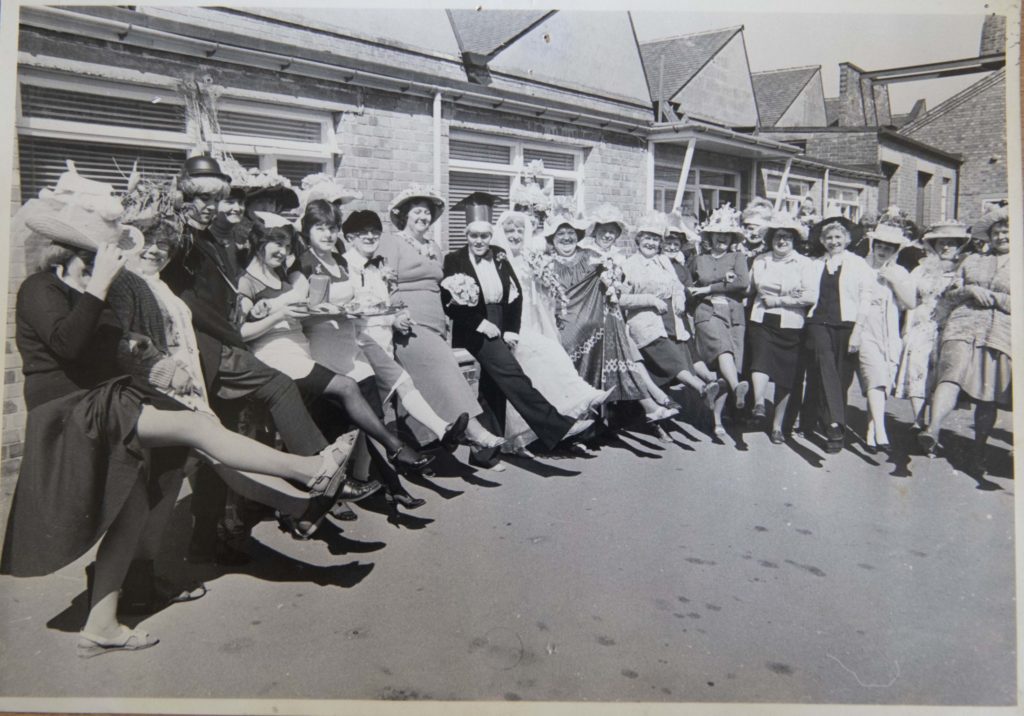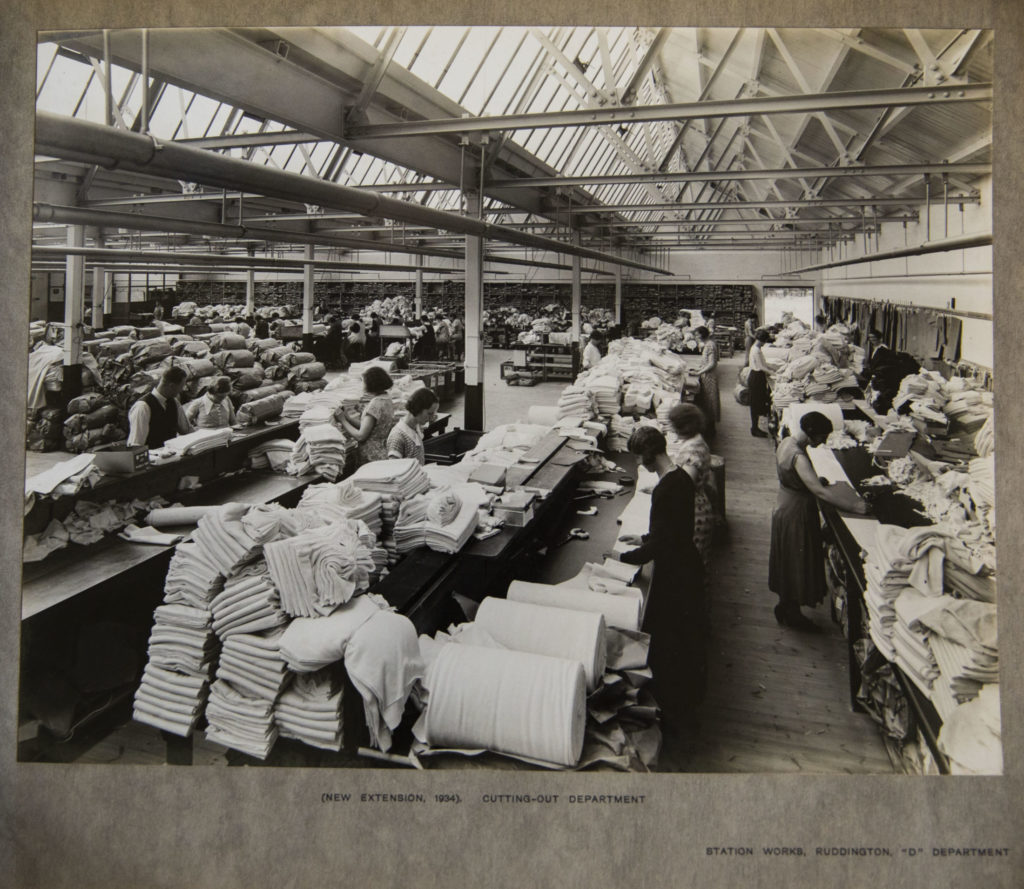
Following on from our seasonal Easter Tweet with the lovely pic of the Easter bonnet competition at Cooper and Roe, I’ve been re-visiting the recordings we made at our first event at Ruddington Framework Knitters Museum in 2019. We interviewed four lovely ladies who had worked at the Cooper and Roe factory in Ruddington, covering the period early 1960s to 1980s.
Most of them had come to work at the factory straight from school, and some of them worked at the site for over 20 years. One of them told us that people stayed there for many years because it was fun, and that they all still see friends they started work with. She went on to tell us tales of camaraderie at work, where the ‘whole room would chip in’ to buy flowers for a sick colleague.
The four ladies we interviewed had various roles at Cooper and Roe. Two of them learned to work on the machines, and two worked with only a needle to carry out skilled invisible mending. One the machinists told us how, if you were really good, you would be taught how to make samples, and describes this as ‘fabulous fun’. She didn’t stop there, however, and told us how she started in lock stitching and progressed to working ‘most of the machines in the factory’. She eventually became a Supervisor, and saw new ways of working brought in, including in the Light Sewing Department where there were now some male machinists, and everyone worked standing up at their machines. She recalls that this was ‘very hard work’, and that she felt sorry for the machinists working like this. Our other machinist was a ‘Lock Stitch Tabber’, sewing labels onto men’s and boys’ underwear. She explained that although she enjoyed her work, there were times when conditions were quite uncomfortable. She recalled working with heavy brown fabric, making ‘long johns’ in the summer when it was hot, and the lint from the material would penetrate your clothes ‘right through to your underwear’. Another challenge came from the nationwide labour-relations crisis in the 1970s which resulted in the ‘three-day week’. Our interviewee recalls that her shift finished at 9pm during that time, but that she would leave just a few minutes before so that she could still cycle home through the village ‘before the lights went out’.
It seems special occasions were marked in style at Cooper and Roe. Our interviewees told us of Christmas parties, fuddles in the canteen, and a special treat on birthdays, where they were allowed to serve everyone in their room a glass of port or sherry and something to eat.
On Coronation day, they wore red, white and blue, and were allowed to make clothes on their machines for this. Likewise, for the Easter bonnet competition, which was an annual occasion at Cooper and Roe, and judged by the staff. One of our interviewees actually won it!
One of the ladies recalled social outings organised by the firm, including trips to Jersey and the tulip fields in Amsterdam. More locally, it seems Friday night was the regular social occasion for the ladies. They all recalled that ‘pay day’ was on a Friday, and getting dressed up to go out that night was a group activity. Whether this was going into town to buy a dress, or if things were more thrifty, making their dresses on the machines ‘when the bosses weren’t looking’ (two would keep a look out whilst the other did the sewing). They even mentioned an occasion when one of their work colleagues had wanted pierced ears for Friday night, and her workmate had carried out the procedure using a sewing needle.
Albert Martin Group took over Cooper and Roe in the 1980s, but the factory was eventually closed in the early 2000s. The Pasture Lane (Ruddington) site was large, and housed many facilities including dyeing and finishing and a factory shop. The ladies we interviewed here all moved on to other things, but they kept in touch with their ex-workmates – as one of them put it ‘there’s something about factory girls that stick together’.

The Cutting Out Dept at Cooper and Roe, Ruddington, 1934. By kind permission Framework Knitters Museum, Ruddington